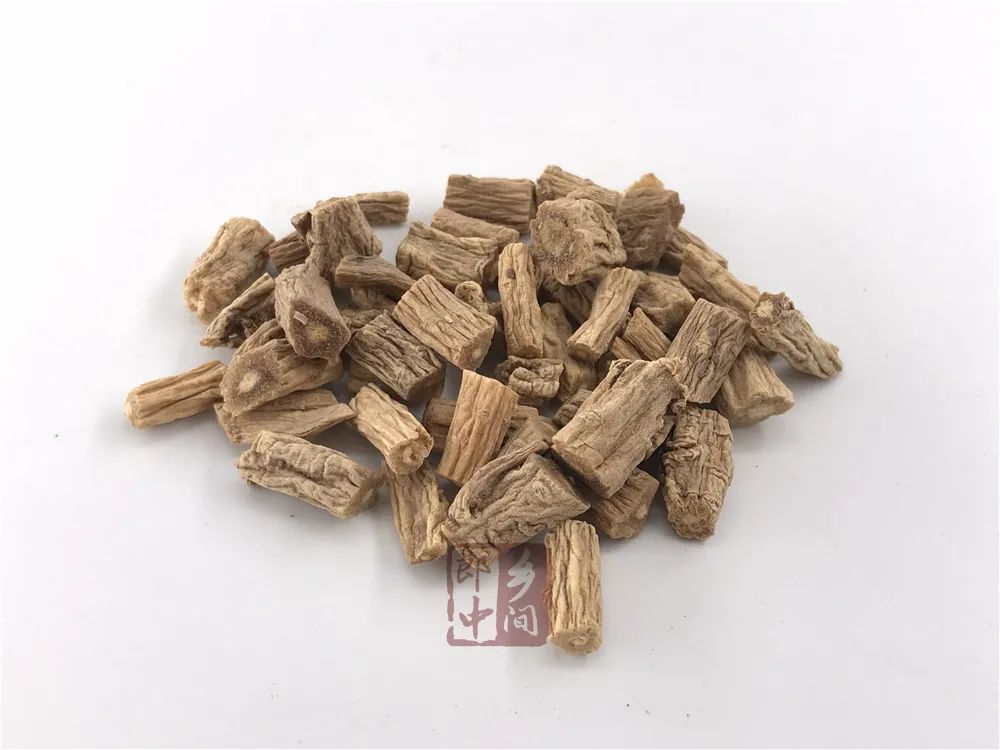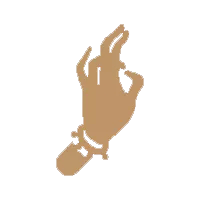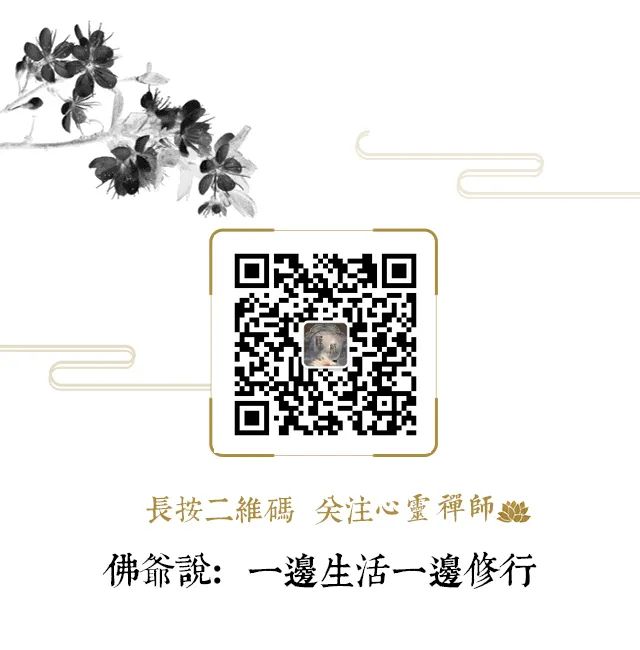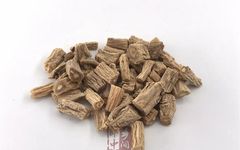
Alias: Lu Dang Shen, Wen Dang, Chao Dang Shen, He Shen, Ye Tai Dang, Zhong Ling Cao, Shang Dang Shen, Shi Tou Shen, Fang Feng Dang Shen, Huang Shen
Taste and Properties: Sweet in flavor, neutral in nature.
Meridian Affinity: Spleen and Lung meridians.
Applicable Constitutions: Qi deficiency, blood deficiency constitution.
Effects and Functions of Dang Shen
Strengthens the spleen and benefits the lungs, nourishes blood and generates fluids. It is used for spleen and lung qi deficiency, poor appetite, fatigue, cough with shortness of breath, insufficient qi and blood, pale complexion, palpitations, shortness of breath, thirst due to fluid damage, and internal heat leading to thirst.
Dosage: 9–30g.
It can replenish deficiency, tonify the middle and benefit qi, generate fluids, nourish blood, and strengthen the spleen and lungs.
Tonifying the Middle and Benefiting Qi, Strengthening the Middle Qi: Used for symptoms caused by lung and spleen qi deficiency such as shortness of breath, low voice, weak cough, fatigue, poor appetite, loose stools, chronic diarrhea, prolapse, benign prostatic hyperplasia, and abdominal pain.
Generating Fluids and Nourishing Blood, Calming the Heart and Spirit: Used for qi deficiency that cannot generate blood or blood deficiency that cannot transform qi. It can treat symptoms caused by blood deficiency and fluid damage such as pale complexion, shortness of breath, palpitations, dizziness, anxiety, internal heat, dry throat, and thirst.
Strengthening the Spleen and Lung, Nourishing the Spleen and Stomach: According to the Qing Dynasty medical text “Ben Cao Zheng Yi” by Zhang Shanlei, Dang Shen can moisten the lungs and generate fluids. In ancient times, due to the scarcity and high price of ginseng, people often used Dang Shen as a substitute. Compared to ginseng, Dang Shen strengthens the spleen without being drying, nourishes yin and the stomach without causing internal cold and dampness, moistens the lungs without being too cooling, and nourishes qi and blood appropriately.
According to the Qing Dynasty medical work “De Pei Ben Cao”, different combinations of Dang Shen can yield different effects. Combined with Shi Lian, it can stop diarrhea; when used with Dang Gui as the monarch herb, it can invigorate and nourish blood; with Zao Ren as an assistant herb, it can nourish the heart; and when steamed with honey, it can replenish the lungs.
1. Tonifying the Middle and Benefiting Qi
Certain components of Dang Shen can adjust gastrointestinal function, have anti-ulcer effects, enhance immune function, resist stress, and regulate blood pressure, demonstrating excellent effects in tonifying the middle and benefiting qi.
2. Enhancing Hematopoietic Function
Dang Shen can increase red blood cell count and hemoglobin levels, thus enhancing hematopoietic function for patients with anemia. It can also promote the recovery of white blood cells that decrease due to chemotherapy and radiotherapy.
3. Nourishing the Heart and Calming the Spirit
The saponins in Dang Shen have sedative, hypnotic, and anticonvulsant effects. Consuming Dang Shen can help nourish the heart and calm the spirit.
4. Enhancing Intelligence and Improving Memory
The n-butanol extract of Dang Shen can enhance learning and memory abilities in both hemispheres of the brain. Therefore, consuming Dang Shen is beneficial for cognitive enhancement and memory improvement.

Indications for Dang Shen
Used for weakness of the spleen and lungs, insufficient middle qi, or sinking qi that fails to hold blood, presenting with fatigue, poor appetite, abdominal distension, loose stools, chronic diarrhea, prolapse, hemoptysis, hematochezia, and metrorrhagia. Commonly used for qi and fluid deficiency, blood deficiency, and simultaneous deficiency of qi and blood. Often combined with herbs that release the exterior and purge the interior to achieve the effect of supporting the righteous and expelling the evil.
Indications include neurasthenia, anemia, leukemia, thrombocytopenia, gastric ulcers, pregnancy-related vomiting, nephritis, hyperlipidemia, and functional uterine bleeding, among others.
Contraindications for Dang Shen
Should not be used in cases of excess syndrome or heat syndrome; not suitable for use alone in cases of true deficiency with evil excess.
While taking Dang Shen, avoid eating radishes and drinking tea.
Should not be consumed with Li Lu.
Dang Shen is incompatible with Wu Ling Zhi and should not be used together.
Not suitable for those with qi stagnation or excessive anger.
The maximum dosage should not exceed 30g.
Methods of Consumption – Benefits of Drinking Infusions
Daily Usage:Generally, the dosage is 9–30g, which can be decocted or brewed as tea.
To generate fluids and nourish blood, it is best used fresh; for tonifying the spleen and benefiting the lungs, it is recommended to stir-fry or dry-fry.
Dang Shen can both tonify qi and nourish blood, which is a significant characteristic. Therefore, those with simultaneous qi and blood deficiency, shortness of breath, palpitations, fatigue, pale complexion, dizziness, poor appetite, loose stools, and susceptibility to colds should take Dang Shen.
Dang Shen can be used to brew tea, cook porridge, or make soup. Take 10g of Dang Shen, cut into pieces, and brew with 5-10 red dates to make tea, which has the effects of strengthening the spleen and nourishing blood. Cooking porridge with yam, coix seed, red dates, and glutinous rice can benefit qi and strengthen the spleen. When stewing chicken soup with other herbs such as Dang Gui, Huang Qi, Goji berries, lily, red dates, and longan meat, it can support qi and nourish blood.
1. Tea Infusion, Enhancing Immunity
10g of Dang Shen and roasted Huang Qi, 5g of Bai Zhu, and 5 red dates. Decoct in water and drink as tea regularly to enhance immunity.
2. Porridge, Strengthening the Spleen and Benefiting Qi
10g of Dang Shen, 30g each of yam and coix seed, 10 red dates, and 50g of glutinous rice. Cook as porridge to strengthen the spleen and benefit qi.
3. Stewing, Nourishing Qi and Blood
10g of Dang Shen, 5g of Dang Gui, 10 red dates, and one young chicken. Clean the chicken, cut into pieces, and add Dang Shen, Dang Gui, and red dates with an appropriate amount of water. Stew for 14 hours, then add seasoning to taste. Regular consumption has the effect of nourishing qi and blood.
Selected Formulas with Dang Shen
1. Clearing the Lungs, Tonifying Yuan Qi, Supporting Muscle Strength
500g of Dang Shen, 250g of Sha Shen, and 200g of longan meat. Decoct to a concentrated juice until it drips like pearls. Take a small cup each time, diluted with hot water.
2. Treating Diarrhea and Postpartum Qi Deficiency with Prolapse
10g each of Dang Shen and yam, 8g each of roasted Huang Qi, Bai Zhu, and nutmeg powder, 3g of roasted Sheng Ma, and 3.5g of roasted Gan Cao. Add appropriate fresh ginger and decoct.
Formula One: Treating Functional Uterine Bleeding
30–60g of Dang Shen, decoct twice, taking once in the morning and once in the evening, for a total of one dose per day. Start taking during the menstrual period or on the first day of menstruation for five consecutive days.
Formula Two: Treating Deficiency of Qi and Blood
30–60g of Dang Shen, stewed with pork, seasoned with salt, and consumed.
Formula Three: Treating Post-Illness Weakness and Poor Appetite
30g of Dang Shen and 100g of glutinous rice. First, decoct Dang Shen to extract the juice, then use the juice to cook the glutinous rice as porridge, consuming 1-2 times.
Formula Four: Treating Uterine Cold and Long-Term Infertility
50g each of Dang Shen and Dang Gui, and one black chicken. After slaughtering the chicken and removing feathers and internal organs, place the Dang Shen and Dang Gui in a cloth bag and put it inside the chicken’s abdomen. Cook until done, seasoning with salt, and consume in portions.
Formula Five: Treating Spleen and Stomach Weakness with Poor Appetite and Loose Stools
10g each of Dang Shen, Fu Ling, and Bai Zhu, and 3g of roasted Gan Cao. Decoct.
Formula Six: Treating Blood Deficiency, Palpitations, and Insomnia
10g each of Dang Shen and Dang Gui, 15g of Shu Di Huang, and 3g of Yuan Zhi. Decoct.
Formula Seven: Treating Prolapse
30g of Dang Shen, 10g of Sheng Ma, and 6g of Gan Cao, decoct; additionally, take 30g of Mang Xiao and 10g of Gan Cao, add 2000–3000ml of water, heat to boil for 5 minutes, then use for warm sitz baths for the anal area, once in the morning and once in the evening.
Formula Eight: Treating Dysmenorrhea
10g each of Dang Shen, Dang Gui, Huang Qi, Bai Shao, Shu Di, and Chuan Xiong. Decoct.
How to Consume Dang Shen – Dosage and Usage
Dang Shen and Dang Gui Stewed with Pig Heart
Ingredients: 1 pig heart, 30g of Dang Shen, and 15g of Dang Gui
Seasoning: Salt to taste
Method: 1. Clean the pig heart, and place it with Dang Shen and Dang Gui in a stewing pot. 2. Add an appropriate amount of water, and steam until cooked, seasoning with salt to taste.
Health Benefits: Nourishes qi and blood, invigorates blood circulation. Suitable for anemia due to qi and blood deficiency, dizziness, fatigue, palpitations, insomnia, and spontaneous sweating.
Qi and Blood Supplementation – Bei Qi Dang Shen Drink
15g each of Bei Qi and Dang Shen, decoct with 10 red dates, adding appropriate white sugar for consumption. One dose per day, for a week.
Qi Tonification and Spleen Strengthening – Shen Qi Rabbit Meat Soup
250g of rabbit meat, with 30g of Dang Shen, 30g of Huang Qi, 30g of Huai Shan, and 5 red dates. Place in a pot with an appropriate amount of water, boil vigorously, then simmer for 2 hours, seasoning with salt.
Spleen Strengthening and Qi Benefiting – Shen Zao Rice
10g of Dang Shen, 10 red dates, and 150g of glutinous rice. First, wash the herbs and dates, decoct to extract the juice, then steam the glutinous rice separately, inverting it into a bowl, and pour the decoction over it, adding appropriate white sugar. Consume twice daily.
Regulating Menstruation and Nourishing the Kidneys – Dang Shen Lotus Chicken Soup
15g of Dang Shen, 3g of snow lotus flower, and 100g of glutinous rice, each in a bag. Place 1000g of hen in a pot with water, add the medicine bag and scallions and ginger, boil, then simmer until cooked. Remove the chicken, cut into pieces, and add the glutinous rice, seasoning with salt.
Qi Nourishing and Fitness – Dang Shen He Shou Wu Stewed Pork Bones
500g of pork bones, 20g of He Shou Wu, and 15g of Dang Shen, along with 4 pieces of wheat. Boil in water for 5 minutes, remove the scum, then simmer for 40 minutes; add 2 slices of ginger and appropriate white sugar, simmer for another 20 minutes until cooked, seasoning with salt.
Kidney Nourishing – Dang Shen Goji Liver Porridge
20g of Dang Shen, 30g of goji berries, 50g of pig liver, and 60g of japonica rice, cooked together as porridge, consumed once or twice daily.
Selection and Storage of Dang Shen
Western Dang Shen (mainly produced in Gansu and Shaanxi) is best when the roots are thick, firm, with tight skin, many transverse wrinkles, and sweet in taste; Eastern Dang Shen (mainly produced in Northeast China) is best when the roots are thick, with yellow skin, firm flesh, and many wrinkles; Lu Dang Shen (mainly cultivated in Shanxi) is best when it has a single stalk, white color, and is thick and long.
Store in a well-ventilated, dry place, protecting against mold and pests.
Authentic Production Areas of Dang Shen: Named after its main production in Jiangxi Shangdang (now Changzhi), the best quality Dang Shen comes from the southeastern Shanxi and Xinzhou regions.



